Rescuers find family dog waiting for murdered Israeli child to come home
With families killed, kidnapped or missing, the Israeli military is being used to enter villages and rescue the pets that have been left behind - including one found waiting for his murdered family to return.
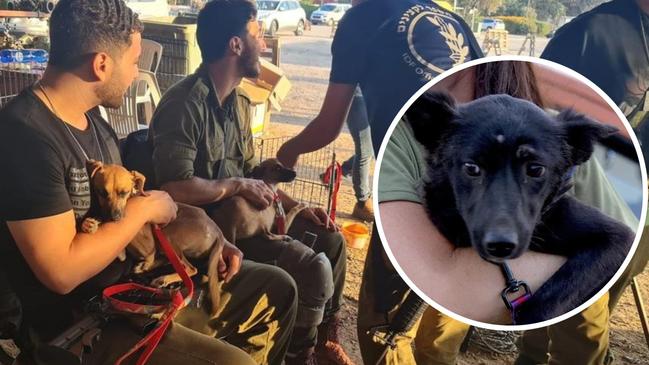
High-risk military missions are being performed almost daily here to extract survivors of the Hamas massacres – but it’s no longer people who need saving; the object now is to save the frightened and lonely pets left behind.
Their families gone – either murdered, or missing – these dogs and cats are being herded, rescued and rehomed by a volunteer corps of animal allies, supported by battle-hardened soldiers who’ve been handing them in while clearing affected villages.
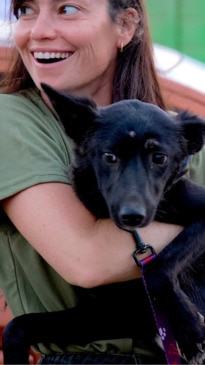
“The army does a lot of work itself,” said Dan Yagudin, a spokesman for the Brothers and Sisters in Arms Animal War Room, established within 24 hours of the terrorist attacks.
“It sends in fully armed soldiers to rescue kittens, to rescue dogs, to rescue puppies, because these are important for the families who have left them behind, who have had to flee.”
Within 48 hours of the terrorist attacks, the shelter bootstrapped itself from nothing and compiled a list of more than 2000 families across Israel ready to take in a rescued animal.
The pets arriving for a vet assessment are usually gone within a few hours, while mounds of pet food and medical supplies pour in via donations. The Australian was asked not to reveal the shelter’s precise location.
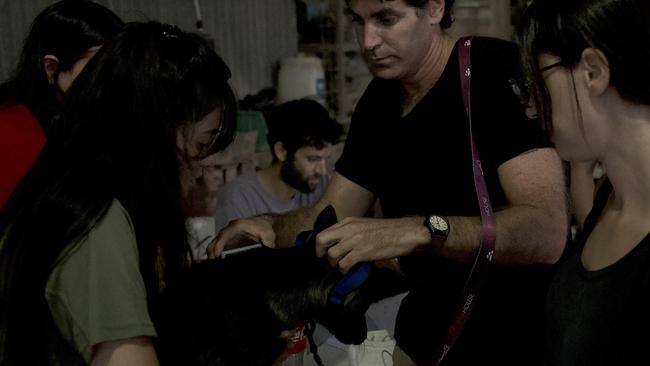
“The government doesn’t give a dollar,” Mr Yagudin said, pointing to stacks of dried kibble, but also cages, leashes, enclosures and other vital equipment needed to keep the shelter running. “This is coming here from all over Israel. Hundreds of dollars worth, thousands, it’s unbelievable.”
Wounded soldiers have turned up at the shelter with a kitten in their arms, or a puppy, hopeful of reuniting them with their rightful owners. Dogs from Gaza have been cared for, having run into Israel through breaches in the security fence.
Volunteers such as Mr Yagudin enter the villages themselves sometimes, often at great personal risk and accompanied by the IDF because of the dangers involved. The army spent days securing regions close to the Gaza Strip, going house to house to liquidate remaining terrorists, clear ordnance, and ensure cars and homes weren’t booby trapped.
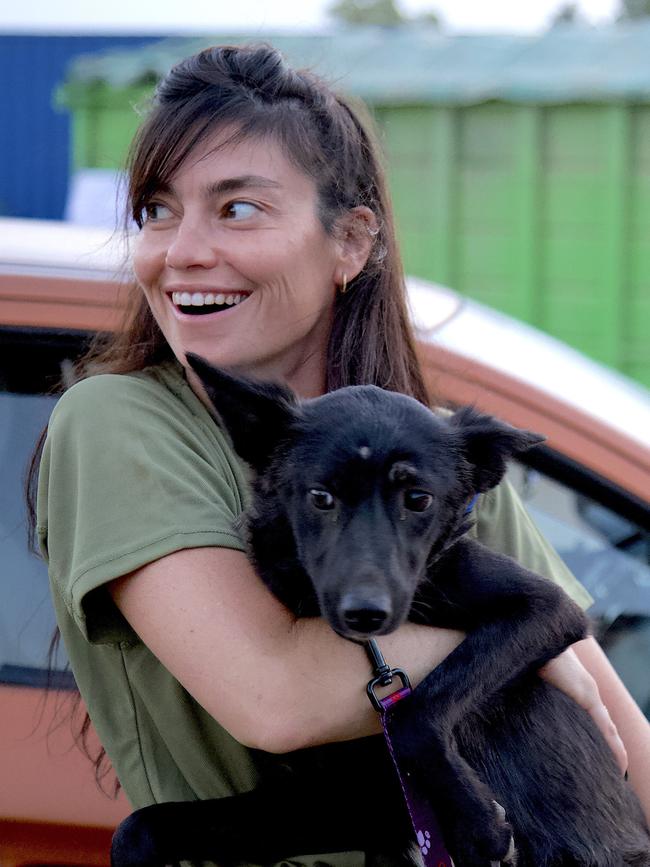
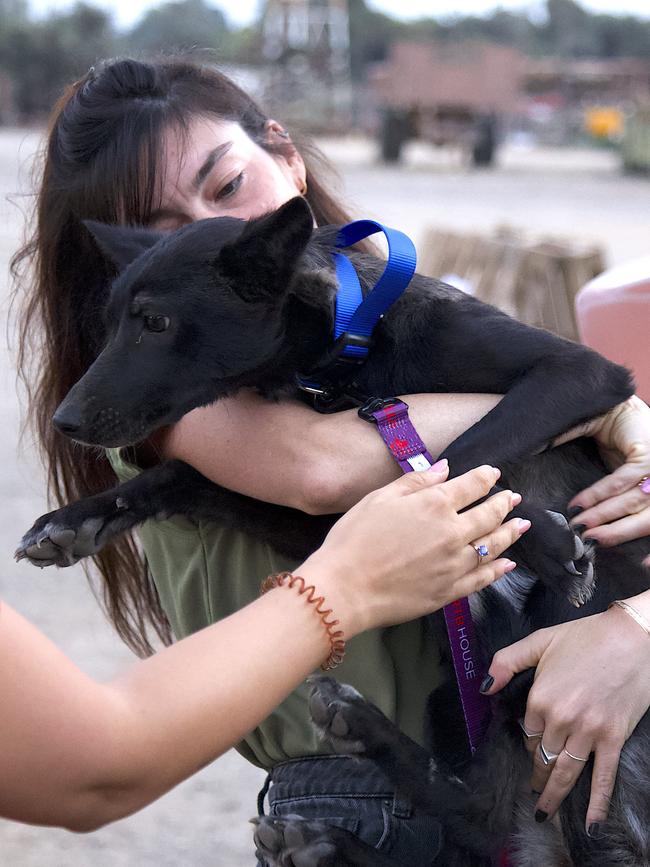
Often the task isn’t reuniting the animals with their owners but to rehome them with another family, Mr Yagudin said.
One soldier clearing a village called the shelter saying he’d found a lone, frightened dog in a house blown up with a grenade.
In Kfar Aza, a first responder surveyed the damage to a family home, filming as they walked through rooms that had been ravaged by automatic gunfire, the doors ripped off their hinges.
Exiting the children’s bedroom, the camera stops when the family labrador is found resting uninjured on a bunk-bed, a bloodstained cot close by.
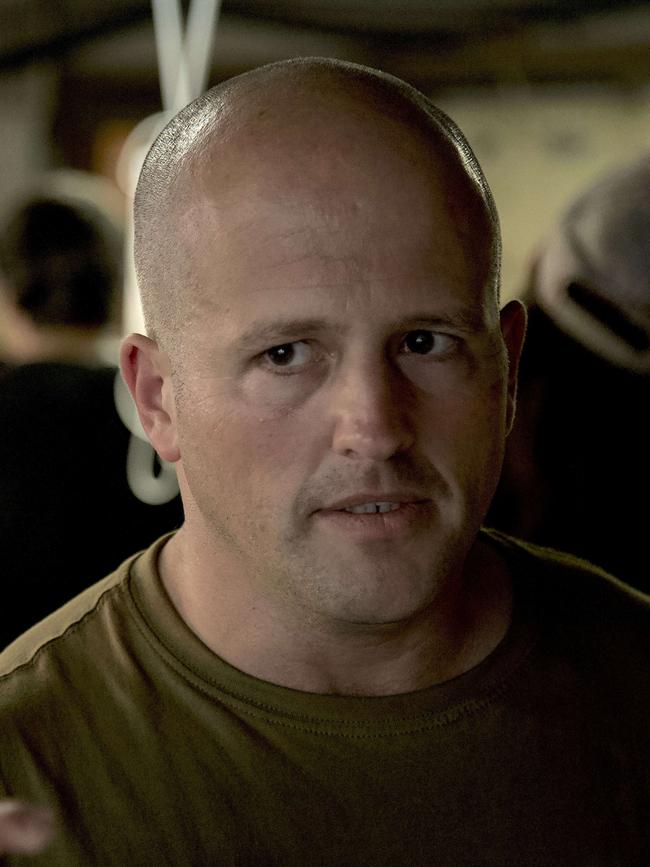
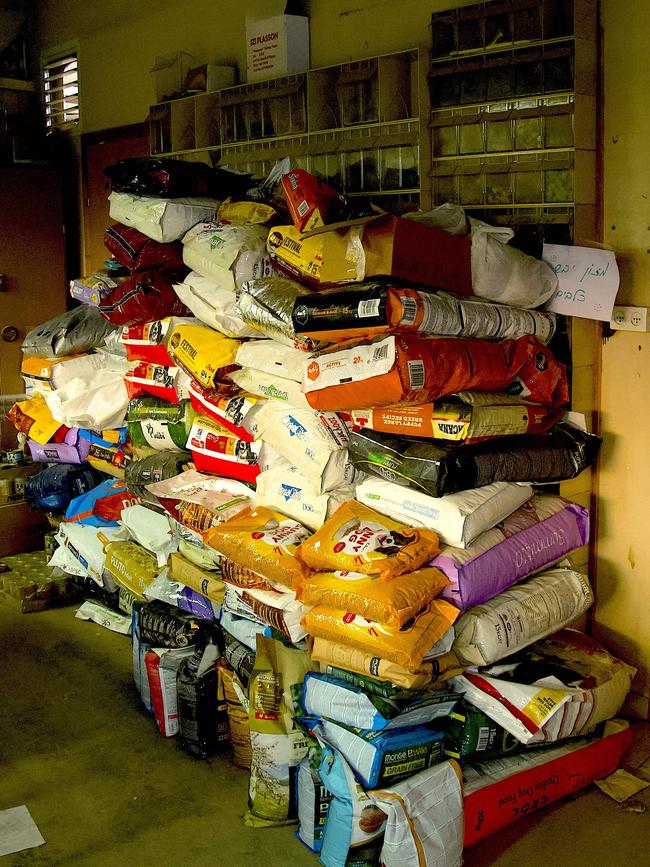
“We had a few that were rescued where the family was kidnapped and then the (extended) family called us and said, ‘This is what we have left. A mother, father, and two children, this (pet) is all we have left’,” Mr Yagudin said.
Sometimes there’s a happy ending. One woman was reunited with her cat after leaving her village the night before the terror unfolded. Army commanders were convinced they wouldn’t find the animal, claiming such a nimble feline would probably have run away. But the woman assured them her cat was a coward and probably wouldn’t have left.
Willing to take the risk, the military stormed the home in full battledress and found the cat on top of a cupboard. This while terrorists were still in the vicinity.
Picking it up at the shelter, the owner tearily thanked the volunteers for saving the cat’s life. “She’s my daughter,” the woman said.



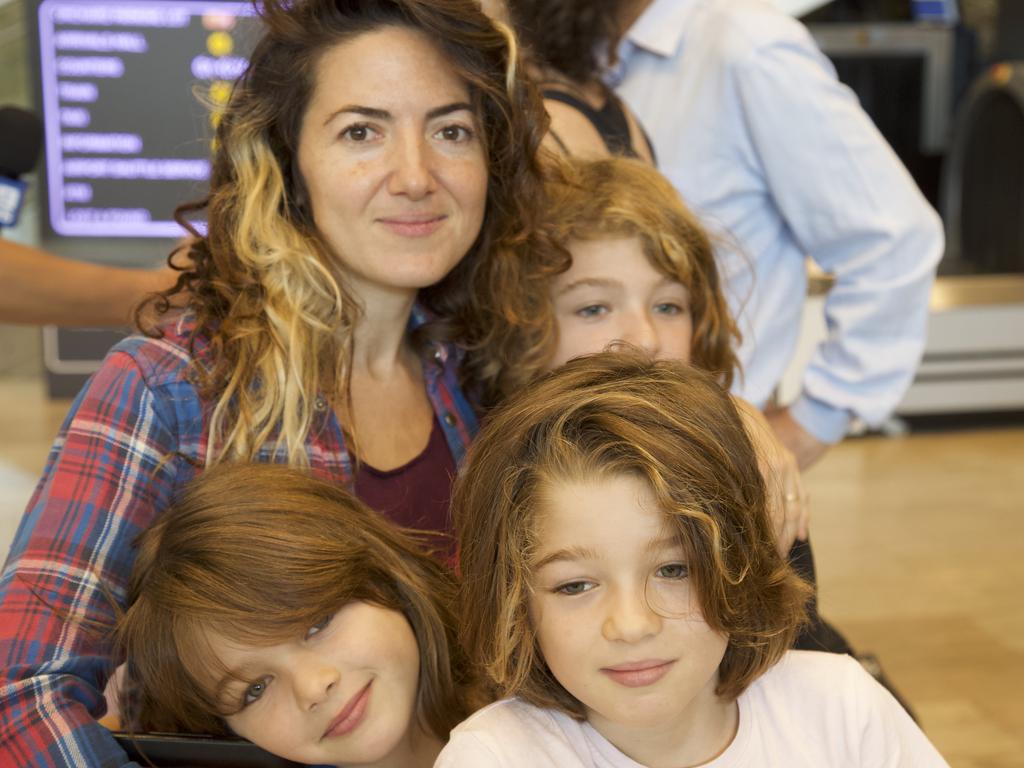
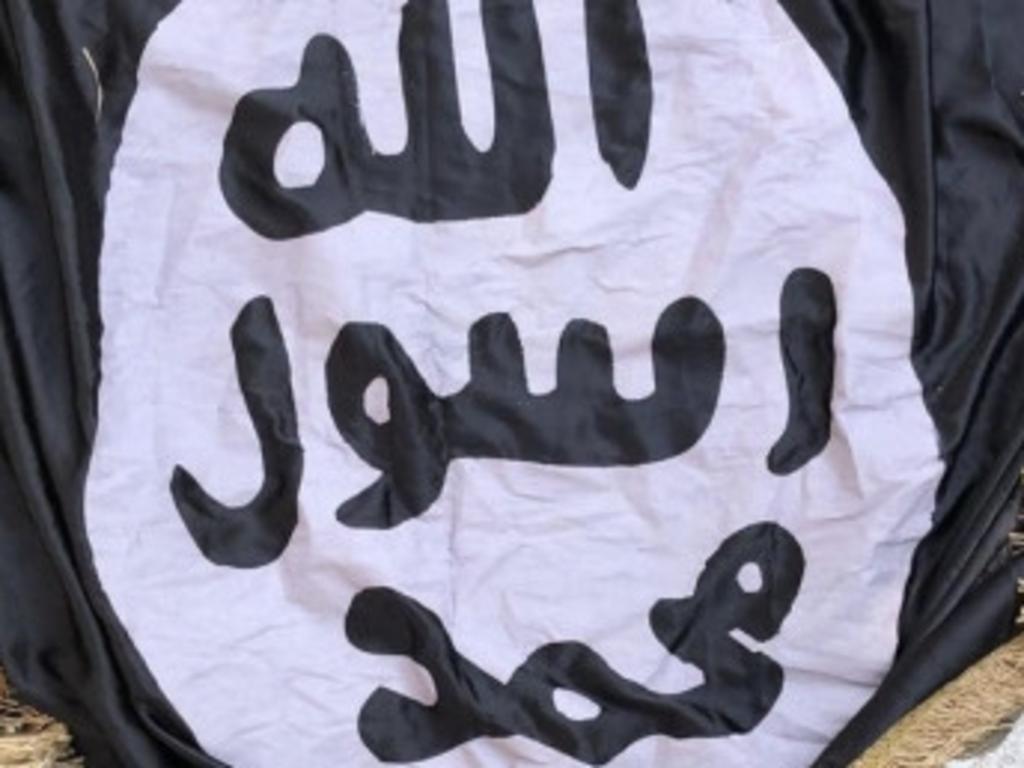


To join the conversation, please log in. Don't have an account? Register
Join the conversation, you are commenting as Logout